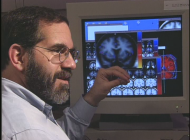
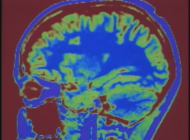 Aided by powerful diagnostic tools, scientists are making dramatic discoveries about how addiction affects the brain. In this 1999 PBS documentary, Bill Moyers visits these new archeologists of the brain to observe their efforts to picture the brain’s desire and pleasure circuitry. Dr. Steven Hyman at the National Institute for Mental Health in Maryland says “we’re getting a map of feelings, of the highs and cravings.” At a laboratory at Mass General Hospital in Boston, he observes a researcher taking brain scans of a volunteer while ingesting cocaine. “This allows us to get an image of desire in the brain. If we know where in the brain drug craving is — the chemicals and the timing — we can start to come up with better treatment to affect the right cells at the right time.” argues Hyman.
Aided by powerful diagnostic tools, scientists are making dramatic discoveries about how addiction affects the brain. In this 1999 PBS documentary, Bill Moyers visits these new archeologists of the brain to observe their efforts to picture the brain’s desire and pleasure circuitry. Dr. Steven Hyman at the National Institute for Mental Health in Maryland says “we’re getting a map of feelings, of the highs and cravings.” At a laboratory at Mass General Hospital in Boston, he observes a researcher taking brain scans of a volunteer while ingesting cocaine. “This allows us to get an image of desire in the brain. If we know where in the brain drug craving is — the chemicals and the timing — we can start to come up with better treatment to affect the right cells at the right time.” argues Hyman.
The poignant and compelling stories of Hal and Wendy, two addicts now in recovery, weave in and out of the quest the scientists are pursuing in their laboratories.
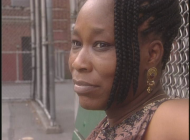
Hal and Wendy talk about falling in love with cocaine, meth amphetamines or alcohol and how their lives were ruined as those substances dominated their lives. Hal lost his job as a business executive. Wendy jumped out of a fourth story window. While they have both been in treatment and rehabilitation, they have both experienced relapses.
The researchers describe addiction as a chronic relapsing brain disease. “It’s a disease because it’s the result of drugs changing the brain,” says Dr. Alan Leschner, Director of the National Center on Drug Abuse. Leschner talks to school and community groups around the country showing how a common mechanism in the brain is triggered by all addicting substances. All of them produce a change in dopamine functioning.
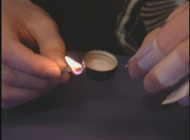 At Steven Hyman’s lab in Maryland young researchers are learning more about how the chemicals in this small number of plants — marijuana, coco leaves and poppies, fool the brain. “They act like trojan horses because they look just like natural chemicals in the brain,” says Hyman. The chronic use of some substances — like meth — inhibits the brain’s ability to produce dopamine. Then the user is taking the substance just to feel normal.
At Steven Hyman’s lab in Maryland young researchers are learning more about how the chemicals in this small number of plants — marijuana, coco leaves and poppies, fool the brain. “They act like trojan horses because they look just like natural chemicals in the brain,” says Hyman. The chronic use of some substances — like meth — inhibits the brain’s ability to produce dopamine. Then the user is taking the substance just to feel normal.
Video cameras and monitors are part of the took kit used by Dr. Anarose Childress, a psychologist at the University of Pennsylvania. Childress both studies and treats addicted patients. Through pet scans she gets brain pictures of their cravings, but she also creates videos of the locations for buying drugs, the paraphernalia for taking them, the routines, the behaviors associated with drug getting and taking to replay to recovering addicts to study their associated cravings. “Emotional memories are the most difficult part of all this,” she claims.
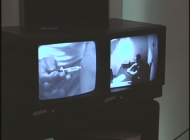 But there is a genetic side to this research as well. At the Veterans Hospital in San Diego, Dr. Mark Shuckit, a Professor of Psychiatry, is studying genes to uncover the biological vulnerability to alcoholism. And we learn from both Hal and Wendy that their family tree was soaked in alcohol abuse. And we learn from both of them — as we watch their new success in handling jobs and relationships — that the road to recovery is not easy. And they are ever vigilant. But a key ingredient to their recovery is studying the new research on addiction and the brain.
But there is a genetic side to this research as well. At the Veterans Hospital in San Diego, Dr. Mark Shuckit, a Professor of Psychiatry, is studying genes to uncover the biological vulnerability to alcoholism. And we learn from both Hal and Wendy that their family tree was soaked in alcohol abuse. And we learn from both of them — as we watch their new success in handling jobs and relationships — that the road to recovery is not easy. And they are ever vigilant. But a key ingredient to their recovery is studying the new research on addiction and the brain.
Funders: Robert Wood Johnson Foundation and Mutual of America
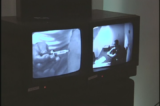
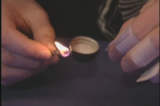
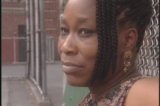
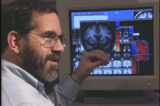
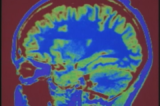
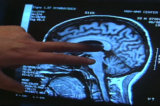
I am an 84 year old male. I have been in recovery and active in AA for 21 years. I understand that once I drank alcoholically my brain changed. I understand that this change in my brain was a huge contributor to my compulsion to drink. This meant that my brain processed alcohol differently than someone who drank but not alcoholically. Is this change to my brain a permanent change so that I can never drink socially?
Thank you for raising such an important question. I will forward your query to a variety of researchers. I, too, will be interested in the response. Gail Pellett
Robert- Iam a recovering alcoholic of 34 years. I know if I took one drink I would be back where I started. The brain never forgets, You need to start sponsoring someone NOW!!! I know I will die an alcoholic but DAMN IT———I will die SOBER.
[…] Dopamine and Serotonin. His work reminded me much of the work from the movie, “The Hijacked Brain” which we showed to the outpatient group when I was working as a Substance Abuse Counselor. […]
Where can i get a copy of the full program? Its difficult to find a full version. I saw this when i was in treatment in 2002 and now that im an addiction counselor i would like to show it to my clients.
Hello Dave, the distributor for Bill Moyers’ documentaries has changed. Please contact Judy Doctoroff at:
doctor@doctoroffmediagroup.com
You can google the title and find the full transcript on line and I believe they have posted the full documentary, but you have to put it in search on the Moyers site. But Doctoroff may be able to help you. Let me know if you have difficulties. I do not have the rights to sell the full documentary. Best, Gail